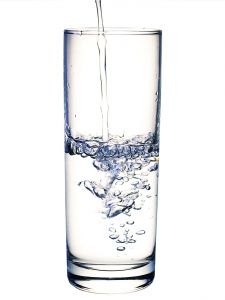The Importance of Staying Hydrated During the Hot Summer
As the warm weather approaches, many of us start to make plans for the summer. Chances are many of these activities such as sporting events, taking walks, riding bikes, yard work or simply soaking up the sun, will be taking place outdoors. This means that as the temperatures get higher there is an increasing importance of not only staying cool but remaining hydrated.
Why Hydration is Important:
The human body is made up of primarily water. It is estimated that approximately 60% of the body is water, with vital organs such as the brain and heart containing approximately 75% water. The kidneys and lungs contain even greater amounts of water, with the lungs being approximately 85% water. This means that in order to maintain proper function, the organs, tissues and muscles require adequate amounts of water. Since we lose water every day through sweat, urine, feces and breathing, it is important that we replenish these water levels.
The Function of Water in the Body:
Water is needed for a number of vital functions within the body. Water is needed to detox the body, flushing toxins and waste from our system. It also helps to regulate body temperature and delivers nutrients to tissues and cells. Water can even affect weight loss, since it is needed to increase the metabolism and burn fat. In fact, while we can survive for weeks without eating food, the human body cannot survive for longer than 3 to 8 days without water. In very harsh conditions, this can be dramatically reduced to only a few hours. 
How Much Water is Enough:
According to health experts, at the Mayo Clinic, the level of water needed to avoid dehydration can vary greatly depending on your age, gender, living conditions and other factors. As a general guideline, men need approximately 13 cups or 3 liters of fluid each day, while women need 9 cups or 2.2 liters. If you are strongly exerting yourself, exercising or sweating profusely, you will need to increase the level of water you are consuming to compensate for the additional loss of fluid. While this may seem like a large quantity of fluid in a day, it can be easily fitted into an average day with a little care and consideration.
Drinking More Water:
The first way to increase your water consumption is to switch sodas, juice and other sugary drinks for good quality water. While soda may feel like it is quenching your thirst, water is the best fluid to keep you hydrated. Since water contains no sugar, colorants or other stimulants, you will also find that water will not cause spikes in your blood sugar, which can sap your energy levels later. It is a good idea to drink at least two cups of water a minimum of an hour before undertaking any exerting activities. This will help to keep you cool and reduce the risk of dehydration. Additionally, you should drink a cup of water every 20 to 30 minutes during prolonged exercise or strenuous activity. It is important to note that feeling thirsty is an indication that you are already becoming dehydrated. A good indicator of whether you are dehydrated is to check the color of your urine. If it is clear and slightly colored, you are perfectly hydrated, darker colored urine indicates that you need to drink more.
About The Author:
Greg Scott is President of Valparaiso based Miracle/EcoWater Systems, the premier water conditioning company in Northwest Indiana serving the Lake, Porter and LaPorte County areas. A 3rd generation water treatment professional, Greg grew up in the family owned business started by his grandfather in the late fifties. He has made water treatment his life and under his direction and high-standards, the company’s water treatment experience, knowledge, and products are unrivaled in region.
Back to
